Events
Upcoming Events
There are no upcoming events matching your criteria.
Previous Events
ISyE Seminar Series: Boris Hanin
Wednesday, Nov. 3, 2021, 3:30 p.m. through Wednesday, Nov. 3, 2021, 5 p.m.
Zoom
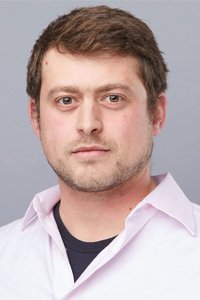 "Ridgeless Interpolation in 1D with One Layer ReLU Networks and Tight Generalization Bounds for Learning Lipschitz Functions"Presentation by Boris Hanin Wednesday, November 3 *Required attendance for students in IE 8773 and 8774 |
|
About the seminar: In this talk, I will give a complete answer to the question of how neural networks use training data to make predictions on unseen inputs in a very simple setting. Namely, for a fixed dataset D = {(x_i,y_i), i=1,...,N} with x_i and y_i being scalars, I will consider the space of all one layer ReLU networks of arbitrary width that exactly fit this data and, among all such interpolants, achieve the minimal possible L_2-norm on the neuron weights. Intuitively, this is the space of “ridgeless ReLU interpolants” in that sense that it consists of ReLU networks that minimize the mean squared error over D plus an infinitesimal L_2-regularization on the neuron weights. I will give a complete characterization of how such ridgeless ReLU interpolants can make predictions on intervals (x_i, x_{i+1}) between consecutive datapoints. I will then explain how to use this characterization to obtain, uniformly over the infinite collection of ridgeless ReLU interpolants of a given dataset D, tight generalization bounds under the assumption y_i = f(x_i) with f a Lipschitz function. |
|
Bio: Boris Hanin works on theoretical machine learning, probability, and mathematical physics and is currently an Assistant Professor at Princeton Operations Research and Financial Engineering (ORFE). Prior to Princeton, Hanin was an Assistant Professor at Texas A&M Mathematics; a Visiting Scholar at Facebook, Google, and the Simons Institute; and an NSF Postdoctoral Fellow in Mathematics at MIT. |
Seminar Video:
ISyE Seminar Series: Dan Atkins
Wednesday, Oct. 20, 2021, 3 p.m. through Wednesday, Oct. 13, 2021, 4:30 p.m.
Ford Hall
Room 110
 "So What? (and Sideways)"Presentation by Dan Atkins Wednesday, October 20 *Required attendance for students in IE 5773, 8773, and 8774 |
|
About the seminar: This talk will wander through a career spent in analytics offering insights into what matters in the real world and reflections on things that don't. Hopefully, students will leave with additional perspective that will assist them in their careers. Atkins will also talk about the tech community locally and why students should engage. |
|
Bio:
Dan Atkins is the President of MinneAnalytics, acting as a sort of particle collider smashing together not only tech, math, and the domain, but also enterprise, startups, and academia to create new elements of community entanglement. Atkins is a classically trained capitalist that's culturally a startup, operating in the enterprise. He spent two decades successfully running an independent analytics consultant. Over nights and weekends he co-founded and has led the nation's largest local emerging tech and data science community.
|
ISyE Seminar Series: Deon Burchett
Wednesday, Oct. 13, 2021, 3:30 p.m. through Wednesday, Oct. 13, 2021, 5 p.m.
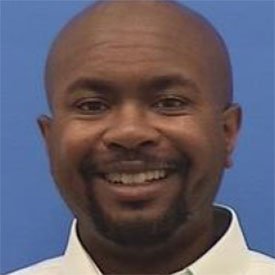 "Telehealth Facility Location Optimization Model"Presentation by Dr. Deon Burchett Wednesday, October 13 *Required attendance for students in IE 5773, 8773, and 8774 |
|
About the seminar: The Telehealth Facility Location Optimization Model was developed as part of the independent research project, Modeling HealthCARE (Capacity, Access, Resource, Evaluation), which is a framework to help organizations make informed decisions about supply and demand. This framework uses modeling and simulation (M&S) to evaluate alternate healthcare delivery solutions and identify potential costly and unforeseen implementation challenges while optimizing capacity, access, and resource utilization. The model allocates patients by county to existing and potential facility locations, minimizing travel distances for patients. Demand and capacity are measured in terms of the total number of appointments within the planning horizon (e.g., one year). Appointments that cannot be assigned to the open facilities, due to insufficient capacity, are outsourced to out-of-network care. |
|
Bio: Dr. Deon Burchett is a senior operations research analyst at MITRE Corporation in McLean, VA. He has worked on projects for various government sponsors, including an optimization model for US Air Force aircraft maintenance scheduling and a regression model for manpower planning for the US Army. He has also worked on projects in the MITRE Innovation Program, including a simulation for capacity planning in the context of telehealth treatment adoption. He previously worked at United Airlines, where he developed optimization-based decision support systems, and at the US Army Materiel Systems Analysis Activity in its Logistics Analysis Division. He received his PhD in industrial and systems engineering from the University of Florida. |
Seminar Video:
ISyE Seminar Series: Yuan Wang
Wednesday, Oct. 6, 2021, 3 p.m. through Wednesday, Oct. 6, 2021, 4:30 p.m.
Ford Hall
Room 110
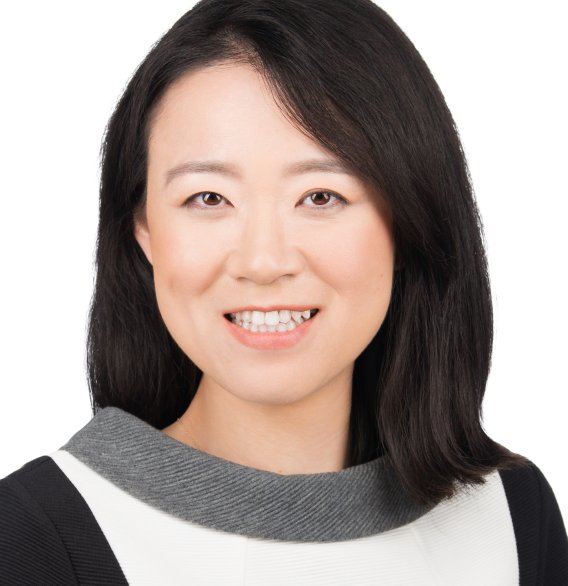 "Quantitative Modeling for Risk Management in Banking: An Overview and Applications"Presentation by Dr. Yuan Wang Wednesday, October 6 *Required attendance for students in IE 5773, 8773, and 8774 |
|
About the seminar: Quantitative risk modeling is a key component of Risk Management in banking. The overall goal of risk modeling is to quantify an aggregated risk for the bank’s portfolios while also facilitating decision-making by the different lines of business, often at the account or customer level. Regulations and practices in risk management have changed significantly over the past two decades, largely in response to regulations that emerged from the financial crisis of 2008. In this talk, I will provide an overview of quantitative risk modeling using several recent projects related to Deposits. I will use the applications to describe different components of risk modeling, including types and structures of datasets, modeling techniques and practices, as well as regulatory requirements on “stress testing”. |
|
Bio:
Dr. Yuan Wang is a Vice President responsible for quantitative analysis in Wells Fargo. She started her career in 2016 through Wells Fargo’s unique Quantitative Analytics Program that recruits new graduates and trains them in banking and quantitative modeling. She currently leads several projects for risk management of models related to Deposits. She received her Ph.D. in Industrial Engineering (specialization in Statistics), advised by Prof. Yajun Mei and Prof. C.F. Jeff Wu, from the Georgia Institute of Technology in 2016. Her undergraduate degree is in Mathematics from Nankai University, China.
|
ISyE Seminar Series: Dawn Woodard
Wednesday, Sept. 29, 2021, 3:30 p.m. through Wednesday, Sept. 29, 2021, 5 p.m.
Zoom
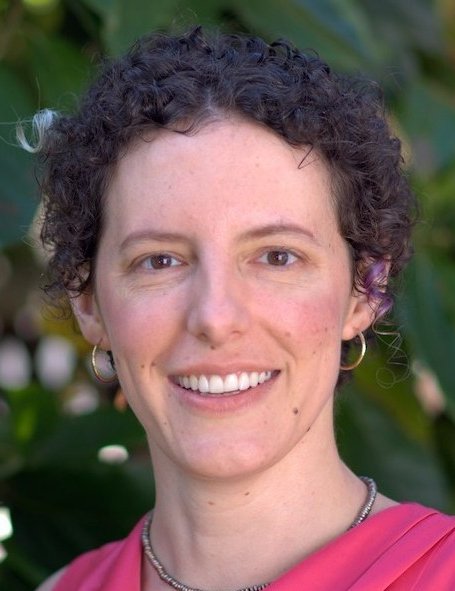 "Map Technologies for Ride-Sharing"Presentation by Dawn Woodard Wednesday, September 29 *Required attendance for students in IE 5773, 8773, and 8774 |
|
About the seminar: Extensive literature now exists on methods for pricing and matching in ride-sharing platforms, such as Uber, Lyft, Didi Chuxing, and Ola. However, less attention has been paid to the complex geospatial inputs required for these systems. For example, carpool matching methods require accurate predictions of the time required to travel between any two locations in the road network. We describe geospatial (map) technologies, including those for travel time prediction and route optimization, that can be used in the context of such large-scale vehicle decision systems. We showcase the challenges, such as data sparsity on parts of the road network, and the fact that highly accurate predictions need to take into account the detailed dynamics of a physical system (traffic patterns in a road network). We also compare several common approaches for travel time prediction, and provide rigorous theoretical results showing that one class of approaches has higher accuracy than alternatives. |
|
Bio: Dawn Woodard leads modeling and data analytics for platforms including Uber Maps, which is the mapping platform used in Uber’s user interfaces and decision systems. The team’s technologies include road map and points of interest definition, map search, route optimization, travel time prediction, and navigation. Dr. Woodard earned her PhD in statistics from Duke University, after which she was a faculty member in the School of Operations Research and Information Engineering at Cornell. There she developed forecasting methods for emergency vehicle decision support systems, in collaboration with ambulance organizations. After receiving tenure at Cornell, she joined Microsoft Research for her sabbatical, where she created travel time prediction methods for use in Bing Maps. She then transitioned to Uber, leading modeling and analytics for the pricing and matching teams, eventually transitioning to her current role in Platforms. |
Seminar Video:
ISyE Seminar Series: Erick Wikum
Wednesday, Sept. 22, 2021, 3 p.m. through Wednesday, Sept. 22, 2021, 4:30 p.m.
Ford Hall
Room 110
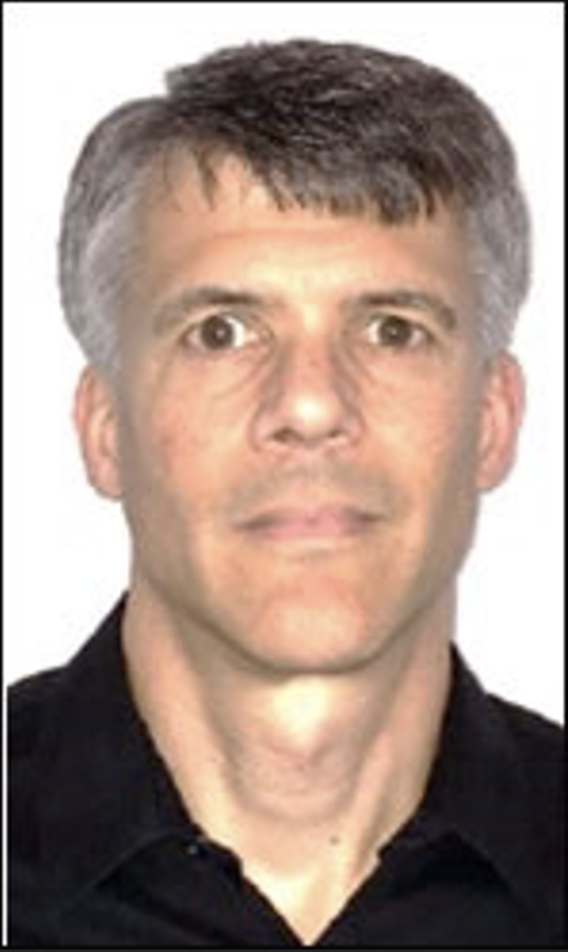 "Practicing Analytics in a Target Rich Environment"Presentation by Dr. Erick D. Wikum Wednesday, September 22 *Required attendance for students in IE 5773, 8773, and 8774 |
|
About the seminar: Analytics, the science of transforming data into insight for making better decisions and achieving superior results, is best practiced in a target rich environment. In this talk, Dr. Erick D. Wikum shares a perspective on his nearly 30-year analytics career, providing specific examples of analytics challenges he addressed across various industries including transportation and supply chain which are especially rich in opportunities to apply analytics. In addition, Erick will share some valuable lessons he has learned to apply analytics successfully that go beyond data and math. Finally, Erick explains the role active involvement in a professional society can play in a fulfilling analytics career. |
|
Bio:
Dr. Erick D. Wikum has dedicated his nearly 30 year career to helping clients to achieve superior results by making better, data driven decisions. He is currently an analytics consultant for Wikalytics, LLC. Erick’s previous work experience included diverse technical and leadership roles and industry applications working for Tata Consultancy Services (TCS), IBM, Schneider, Norfolk Southern and the U.S. Air Force. Erick earned M.S. and Ph.D. degrees in Operations Research from Georgia Tech and a B.S. in Operations Research and Mathematics from the United States Air Force Academy. He is an active member of INFORMS, having recently served as president and Subdivisions Council representative of the Analytics Society. He is an associate editor of the INFORMS Journal on Applied Analytics. He has served on the organizing committee for the INFORMS Business Analytics Conference for a number of years and is general chair for the 2022 conference.
|
Seminar Video:
ISyE Seminar Series: Florin Ciocan
Wednesday, Sept. 15, 2021, 3:30 p.m. through Wednesday, Sept. 15, 2021, 5 p.m.
Zoom
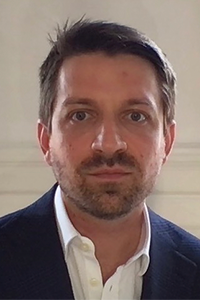 "Price Delegation with Learning Agents"Presentation by Professor Florin Ciocan Wednesday, September 15 |
|
About the seminar: Many firms delegate pricing decisions to sales agents that directly interact with customers. The premise behind this practice is that sales agents can gather informative signals about the customer's valuation for the product of interest. This information acquired through the interaction with the customer can then be used to make better pricing decisions. We study the underlying principal agent problem that arises in such situations, which we believe fills a void in the revenue management literature. In this setting, the agent can exert costly effort to learn a customer's valuation and decide on the price to quote to the customer, while the firm needs to offer a contract to the agent to induce the desired joint learning and pricing behavior. We analyze two versions of this problem: a baseline model where there is a single customer and a single good, and a generalization where there are multiple customers and goods with possible inventory/capacity limitations. For both problems, we find sequences of contracts that asymptotically achieve first best revenues even with limited liability, and shed light on the structure and implementation of such contracts. Under reasonable assumptions, these contracts can be implemented with commissions convex-increasing in revenues, and perform well under practical adjustments such as revenue share bounds on commissions. |
|
Bio: Florin Ciocan is an Assistant Professor of Technology and Operations Management at INSEAD. His research interests are in applications of revenue management to non-traditional domains such as online advertising and other Internet facilitated marketplaces. He is also interested in cloud-based optimization methods for massively sized datasets. Florin holds a BA degree in Applied Mathematics from Harvard College and a PhD in Operations Management from MIT. |
Seminar Video:
ISyE Seminar Series: Noshir Contractor
Wednesday, April 28, 2021, 3:30 p.m. through Wednesday, April 28, 2021, 5 p.m.
Zoom
|
 "People Analytics: Using Digital Exhaust from the Web to Leverage Network Insights in the Workplace"Presentation by Professor Noshir Contractor Wednesday, April 28 |
|
About the seminar: In order to bring the performance of people analytics up — and in line with the hype — organizations need to do more than analyze data on demographic attributes. We need to focus not only on who people are but also who they know. The potential for social network analysis to identify “high potentials,” who has good ideas, who is influential, what teams will get work done efficiently and effectively is well established based on decades of research. The challenge has been the collection of network data via surveys that are time consuming, elicit low response rates and have a high obsolescence. This talk presents empirical examples ranging from corporate enterprises to simulated long duration space exploration to demonstrate how we can leverage people analytics – and in particular relational analytics - to mine “digital exhaust”— data created by individuals every day in their digital transactions, such as e‐mails, chats, “likes,” “follows,” @mentions, and file collaboration— to address challenges they face with issues such as team conflict, team assembly, diversity and inclusion, succession planning, and post-merger integration. References: Better People Analytics, published in Harvard Business Review (pdf) |
|
Bio: Noshir Contractor is the Jane S. & William J. White Professor of Behavioral Sciences in the McCormick School of Engineering, the School of Communication and the Kellogg School of Management at Northwestern University. His research explores how social and knowledge networks form and perform. He received the National Communication Association Distinguished Scholar Award in 2014 and was elected a Fellow of the International Communication Association in 2015. In 2018 he received the Distinguished Alumnus Award from the Indian Institute of Technology, Madras where he received a Bachelor’s degree in Electrical Engineering. He has a Ph.D. from the Annenberg School of Communication at the University of Southern California. |
Seminar Video:
ISyE Seminar Series: John-Paul Clarke
Wednesday, March 31, 2021, 3:30 p.m. through Wednesday, March 31, 2021, 5 p.m.
Zoom
|
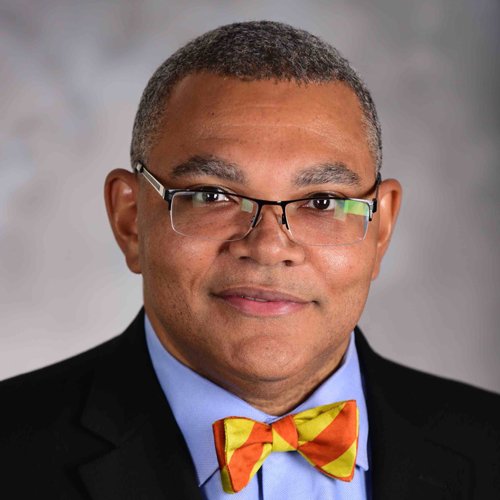 "Towards Increasingly Autonomous Aircraft-Enabled Mobility"Presentation by Professor John-Paul Clarke Wednesday, March 31 |
|
About the seminar: The national vision for advanced aerial mobility is an airspace system that can support high-scale flight operations supporting any number of applications, using vehicles small and large, carrying passengers or cargo, and operating over cities or in remote areas This vision will require greater aircraft and air traffic management (ATM) system autonomy; a synergistic relationship between vertiport locations and flight trajectories to address noise, privacy, and safety concerns; and new certification standards for vehicles, systems, and operators. To this end, I will discuss how the first two challenges may be addressed via simulation and optimization, and present prior and ongoing work on frameworks, algorithms, and policies for autonomous decision-making during approach and landing; highly automated multi-aircraft conflict resolution; and trajectory planning to maximize the mission efficiency, success and survivability of autonomous flight vehicles. I will also propose a framework for the certification of vehicles that must both operate and make decisions autonomously. References: Near Real-Time Fuel-Optimal En Route Conflict Resolution (pdf) |
|
Bio: John-Paul Clarke is a professor of Aerospace Engineering and Engineering Mechanics at The University of Texas at Austin, where he holds the Ernest Cockrell Jr. Memorial Chair in Engineering. Previously, he was a faculty member at Georgia Tech and MIT, Vice President of Strategic Technologies at United Technologies Corporation (now Raytheon), and a researcher at Boeing and NASA JPL. He has also co-founded multiple companies, most recently Universal Hydrogen – a company dedicated to the development of a comprehensive carbon-free solution for aviation. Clarke is a leading expert in aircraft trajectory prediction and optimization, especially as it pertains to reducing the environmental impact of aviation, and in the development and use of stochastic models and optimization algorithms to improve the efficiency and robustness of aircraft, airline, airport, and air traffic operations. He is the founding chair of the AIAA Human-Machine Teaming Technical Committee, and was co-chair of the National Academies Committee that developed the US National Agenda for Autonomy Research related to Civil Aviation. Clarke received S.B. (1991), S.M. (1992), and Sc.D. (1997) degrees in aeronautics and astronautics from MIT. He is a Fellow of the AIAA, and is a member of AGIFORS, INFORMS, and Sigma Xi. |
Seminar Video:
ISyE Seminar Series: Hui Zou
Wednesday, March 10, 2021, 3:30 p.m. through Wednesday, March 10, 2021, 5 p.m.
Zoom
|
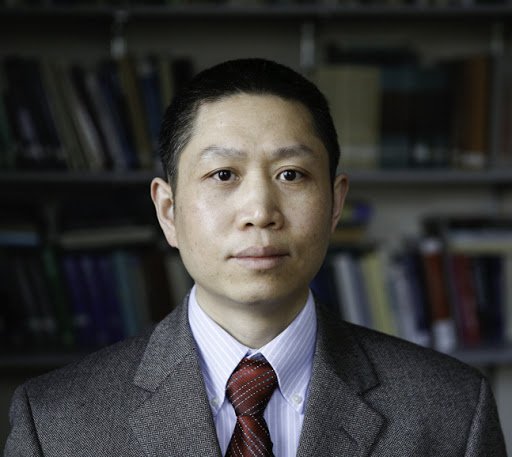 "Sparse Composite Quantile Regression in Ultrahigh Dimensions"Presentation by Professor Hui Zou Wednesday, March 10 |
|
About the seminar: When estimating coefficients in a linear model, the (sparse) composite quantile regression was first proposed in Zou and Yuan (2008) as an efficient alternative to the (sparse) least squares to handle arbitrary error distribution. The highly nonsmooth nature of the composite loss in the sparse composite quantile regression makes its theoretical analysis as well as numerical computation much more challenging than the least squares method. The theory in Zou and Yuan (2008) was proven under fixed-dimension asymptotics and the estimator was computed via linear programming that does not scale well with high dimensions. In this paper, we study the sparse composite quantile regression under ultrahigh dimensionality and make three contributions. First, we provide a non-asymptotic analysis of both the lasso and the folded concave penalized composite quantile regression, which reveals a practical way of achieving the oracle estimator. Second, we construct a novel information criterion for selecting the regularization parameter in the folded concave penalized composite quantile regression and prove its selection consistency. Third, we exploit the structure of the composite loss and design a specialized optimization algorithm for computing the penalized composite quantile regression via the alternating direction method of multipliers. We conduct extensive simulations to illustrate the theoretical results. Our analysis provides a unified treatment of the concentration inequalities involving the composite loss. Those inequalities could be of independent interest. This is joint work with Yuwen Gu. Reference: Gu, Y. and Zou, H. (2020). IEEE Transactions on Information Theory, 66(11), 7132—7154. https://ieeexplore.ieee.org/abstract/document/9112219
|
|
Bio: Hui Zou is a Professor in school of Statistics at University of Minnesota. He received B.S. in Math and Physics from University of Science and Technology of China, and PhD in Statistics from Stanford University under the supervision of Trevor Hastie. His research interests include high-dimensional statistics, machine learning, and data science in general. He is an elected Fellow of Institute of Mathematical Statistics (2015) and American Statistical Association (2019). He has been Web of Science highly cited researcher since 2014. He received several other awards including NSF career award in 2009, IMS Tweedie award in 2011 and Scholar of the College in 2015. He also received a COGS outstanding faculty award for excellence in teaching in 2013. He has served on the editorial board of Annals of Statistics, Journal of the American Statistical Association, Journal of the Royal Statistical Society, Series B, Journal of Machine Learning Research, and Statistica Sinica. |
Seminar Video